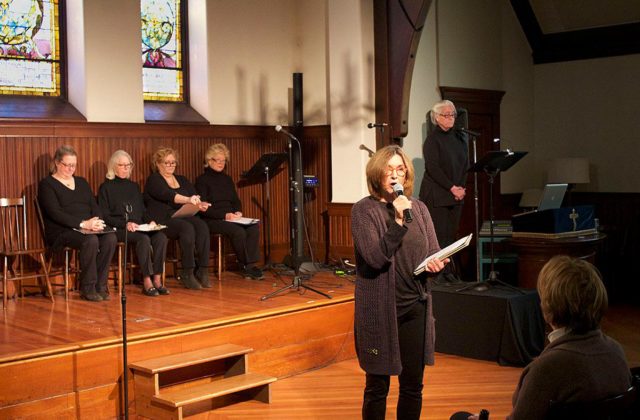Isabellas Perform Women’s Poetry of World War I
For this year’s annual production, “Scars Upon My Heart,” the Isabella Players presented a reading of women’s poetry from World War I. The somber and moving performance began with the players, all dressed in black, filing into the chapel singing the patriotic hymn “Jerusalem.” Ann Havemeyer introduced the readings by explaining the importance of poetry during the war, and then gave a brief introduction to each poem. Except for Edith Wharton, who spent the war years in France, the writers were English, including Rose Macaulay, Sara Teasdale, Vera Brittain and May Sinclair.
Each poem received its own dramatic interpretation. Sometimes two or three readers would step forward together and trade lines or join their voices in unison. For one poem, Edith Sitwell’s “The Dancers,” the troupe quietly stomped their feet in the background as Louise Davis read. There was only one poem by a man, Wilfred Owen’s “Dulce et Decorum Est,” perhaps the most famous poem of the war, read by Betsy Gill with her back turned to the audience and the lights dimmed. Several poems, one heartbreaking (“Perhaps”), one angry (“The Lament of the Demobilised”), were by Brittain, best known for her memoir of the war, “Testament of Youth.” At the end, Ann Havemeyer and Jude Mead together sang Emmylou Harris’s “Bang the Drum Slowly,” written in honor of Harris’s father, who’d fought in World War II, before the readers filed back out of the chapel. The audience, which had sat rapt throughout, responded with warm and appreciative applause.
Photo by Wiley Wood.

